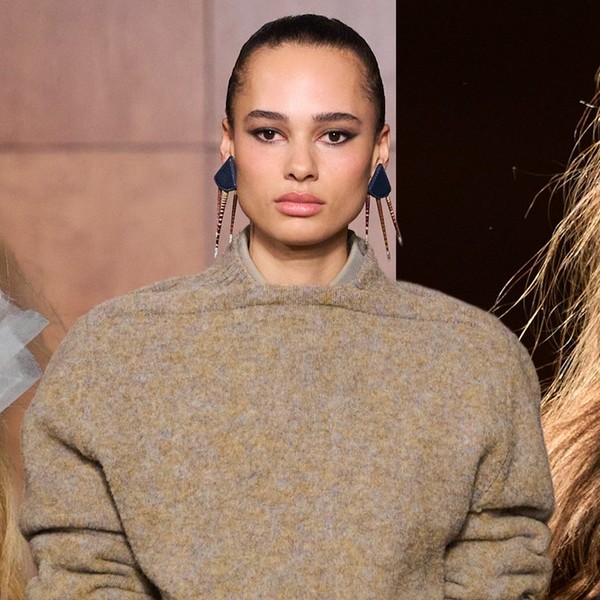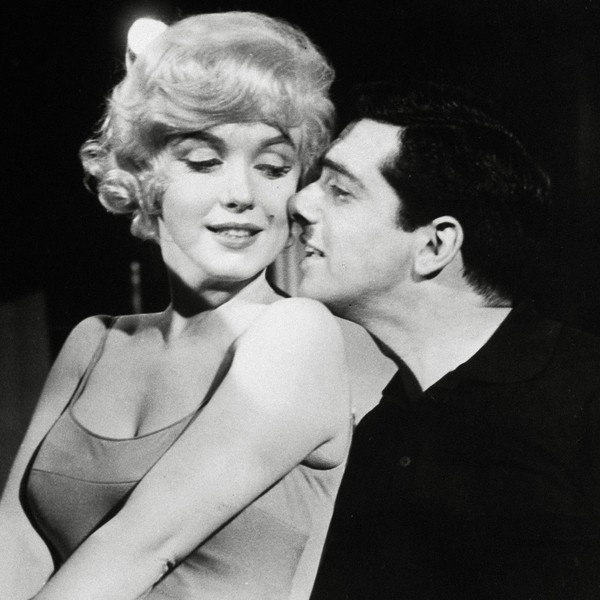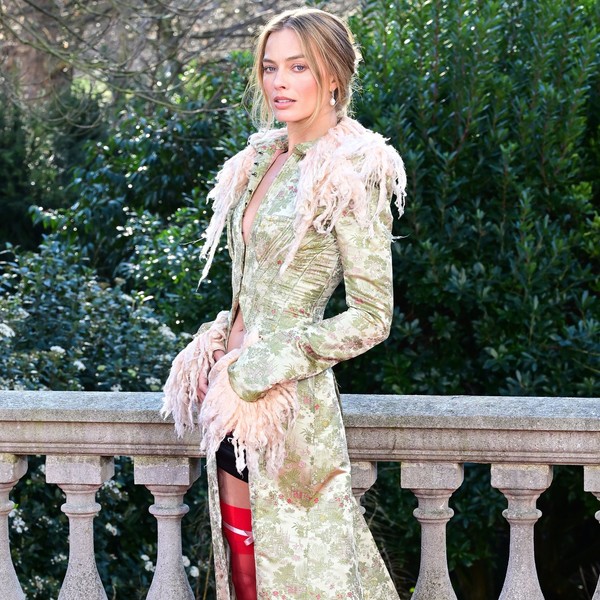Halsey on the Beauty of Reinvention
"As makeup became more agender, it felt like there was more room for me to explore and experiment. Once I cracked open that door, there was no going back."
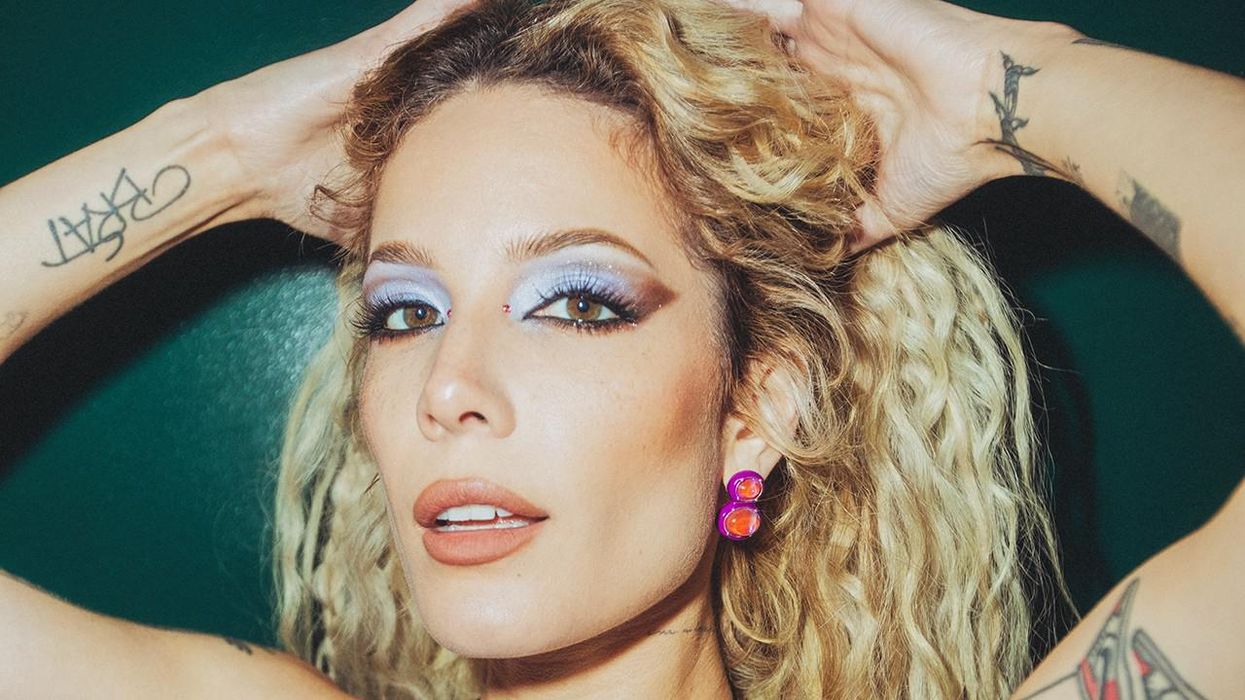
Welcome to On Beauty, a series where we take a deep-dive look into one person's relationship to beauty, how that relationship has transformed over the years, and how they experience being seen. This week, we're talking to Halsey, Grammy-nominated artist and founder and chief creative officer of About-Face Beauty. Below, in their own words, Halsey discusses finding freedom within reinvention, the creative influences for their Love and Power tour, and more.
I grew up with two brothers, and my mom was always a little bit of a tomboy. Experimentation, regarding glam, was a taboo in my household and it wasn't outwardly expressed, so my way of rebelling as a child was dying my hair, playing with makeup, and cutting up my clothes to create different outfits. As a child, I was really attracted to that style of expression because I lived in a really sporty, masculine house. That was my way of separating myself from that aesthetic.
I moved a lot growing up. I went to eight different schools. One of the things that I discovered along the way was that every time I would start at a new school, I had the opportunity to reinvent myself because nobody there knew anything about me. Obviously, this was long before social media, where people can suss you out and see if who you are holds up to how you present yourself. But I had the freedom of getting to be someone new, and sometimes that would mean changing my name. I remember when I was in third grade, I went to a school for just one year, and I told everybody my name was Sky. I don't know why I did that. I just decided that that was going to be my name.
Then I remember a couple years ago running into somebody in a bar in New York and they came up to me and they were like, "Sky," and I was like, "What?" They said, "Sky, it's me, it's Matt," and I said, "I literally have no idea who you are, and I don't know who Sky is." He responded, "We went to school together. We were in Miss Smith's class." That's where it flashed back to me, and I was like, oh, shit. I forgot that I did that for a year. A less extreme [example] was when I went through a goth phase at [age] 10 or 11, which is pretty young for a goth. The rest of the reinventions followed suit until I found a way to make it my career to do so.
I think [experimenting with looks] gave me the opportunity to fail in the space that was safe. I could try something on and if it didn't work out, [I could] just abandon it and move on to the next thing. I think that's even still true to how I am today; the failure, the reinvention, the bad experiments, they just never stop. I’ll see photos of myself from as recently as six months ago and say, what was I thinking? But whatever I was thinking was true to me at that time and in that moment.
Sometimes [the reinventions] work out and become little attachments that latch onto the more foundational part of my personality and identity. I think the best thing that’s happened to me with the rebirth of makeup as an industry in the past couple years is that it's become agender. I've always loved experimenting with makeup, but I really struggled with it as I got older and came into my sexuality and gender identity. Then as makeup became more agender, it felt like there was more room for me to explore and experiment. Once I cracked open that door, there was no going back.
I don't always have control over the way that me or my art is received, which I think is true of any artist. I can have a very specific intention about the way I want [my songs] to make someone feel, [but] when it goes out into the world, the world applies their own stigmas, pre-connotations, experiences, or biases. Every person has a different composite [of me]. One person might know me because they saw my SNL [performance], then they heard my first album, then they read an interview I did two years ago. Their composite of who Halsey is is based on that. But someone who's following my Instagram, watching my [Instagram] Lives every day, and coming to the concerts has a more complex composite of who I am. All of those different people are going to receive things very differently based on the composite of me that they have.
I really, truly, from the bottom of my heart wish I could go around to tens of millions of people and sit down and have a drink or a cup of tea with them and be like, "Let me get this straight. I want you to know who I am so there's no misunderstandings." But, unfortunately, I just can't do that. I can only control what it is that I share.
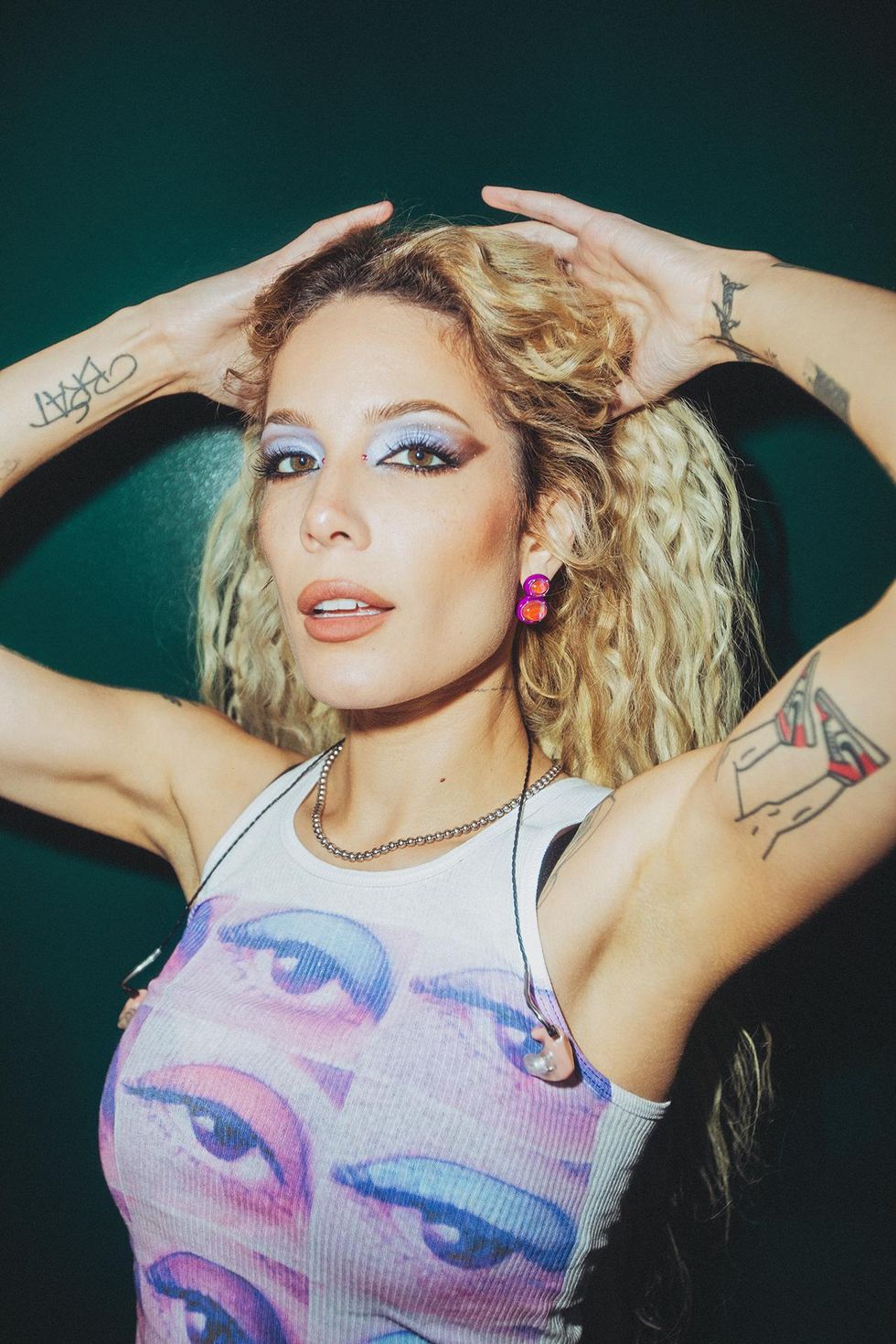
Halsey backstage on tour wearing About-Face Beauty Matte Fluid Eye Paint in Capulets, White Noise, New Karma, Matte Lip Color in Slumber, and Line Artist in Into the Void.
Photo: Jasmine Safaeian
The tour has been really fun. It's been really interesting because it's a creative diversion from how the record started. I wrote the album based on my experience being pregnant, and we filmed a movie in the Czech Republic to accompany it. It was a medieval, pre-Edwardian, body horror film about pregnancy.
As time went on, I gave birth as one does when they are pregnant. My relationship with those same concepts evolved, so now my relationship with that body horror and dysphoria had nothing to do with being pregnant and everything to do with postpartum. I modernized the content a little bit [for the tour] and I drew from a lot of my favorite references. There's a scene that's a recreation of a scene from a French body horror film that came out last year called Titane. It was an incredible movie. The filmmaker, her first movie, Raw, is another body horror film that I've been referencing also in the show.
The content is very graphic and it arguably should make the audience uncomfortable, which is not what you want; as a performer, you don't want your audience to be uncomfortable. But there's something about the way we're singing and the way that this story unfolds that almost gives people permission to express those things about themselves. For my more dedicated fans, I find that the experience is very cathartic, and to my more casual fans, it's at least interesting. Everybody who goes has a good time and I think it's up to the individual fan how much they take away from it.
[The tour has] also been cool for me in terms of the makeup and clothing because I'm taking a much different approach to this tour. I'm wearing one costume every night. There's no costume changes, there's no elaborate, custom designer pieces. I’m exclusively wearing clothes I thrifted or found on Depop. It's really fun. [The outfits] evoke a bit of a '90s [vibe] influenced by early No Doubt, Hope Sandoval, Mazzy Star, and Fiona Apple. I’m usually wearing jeans and a tank top or an antique necklace and cargo pants; it's very pared down. I'm sure that there's a political statement in that. Male artists have the luxury of getting on stage and doing that, but female artists are expected to do the 10 costume changes. [I’m also doing it] because I'm doing a summer tour and I want to be comfortable. I'm on stage in 100-degree weather, and I thought, fuck it. I want to go out there in a tank top and jeans. That's how I feel great.
I find I really struggle sometimes with awards shows because you're restricted on the stage and there's an expectation to do a more grandiose look. For me, I always perform the best when I'm in combat boots or a tank top or something really unrestrictive. Just the other night I went on stage in a corset that I really liked, but I tied it a little bit too tight, and what could have been a really incredible show for me, I was thinking about the corset the entire time that I was on stage. I find myself having to make really difficult decisions because sometimes what's the most glamorous isn't always the most conducive to a good performance.
One thing that's so awesome about the makeup that we developed [for About-Face] is I was meticulous about a long wear formula. Because there's nothing worse than being on stage and thinking to yourself, oh my God, is my lipstick smeared? Is my eyeliner running? You want to have the freedom to bounce around. I don't want people watching me sing and being distracted because my makeup is half eaten off my mouth or it's smeared all over the place or whatever. I want them to have the ability to focus the same as I do. As the product [line] stands right now, we're really eye- and lip-focused. There's no complexion products yet because I don't wear foundation on stage. I just can't. I sweat way too much; it would separate all over my face. There's something really awesome about going out there with your naked face—your skin just how it is.
I've definitely [grown] more skincare-minded [as I’ve gotten older]. I'm turning 28 this summer, but my body and my face disagree because I've spent a decade touring. On airplanes, jet lagged and on stage with the elements—be it the haze, the smoke, the fire—all those are pollutants that I'm exposed to for hours every night. And also the process of makeup on, makeup off, makeup on, makeup off. I care a lot about my skin right now. I just pay way closer attention to the ingredients in products, which is why when I founded About-Face, it was very important to me to have all clean ingredients. Then a little while after I launched this company, I got diagnosed with some autoimmune diseases which come with very particular allergies. I had to revamp my whole life. I had to throw away products I loved. I had to stop using things and gift things to my friends. I remember thinking how lucky I was that we designed my own makeup to be the way that it was because I could still use my own products.

